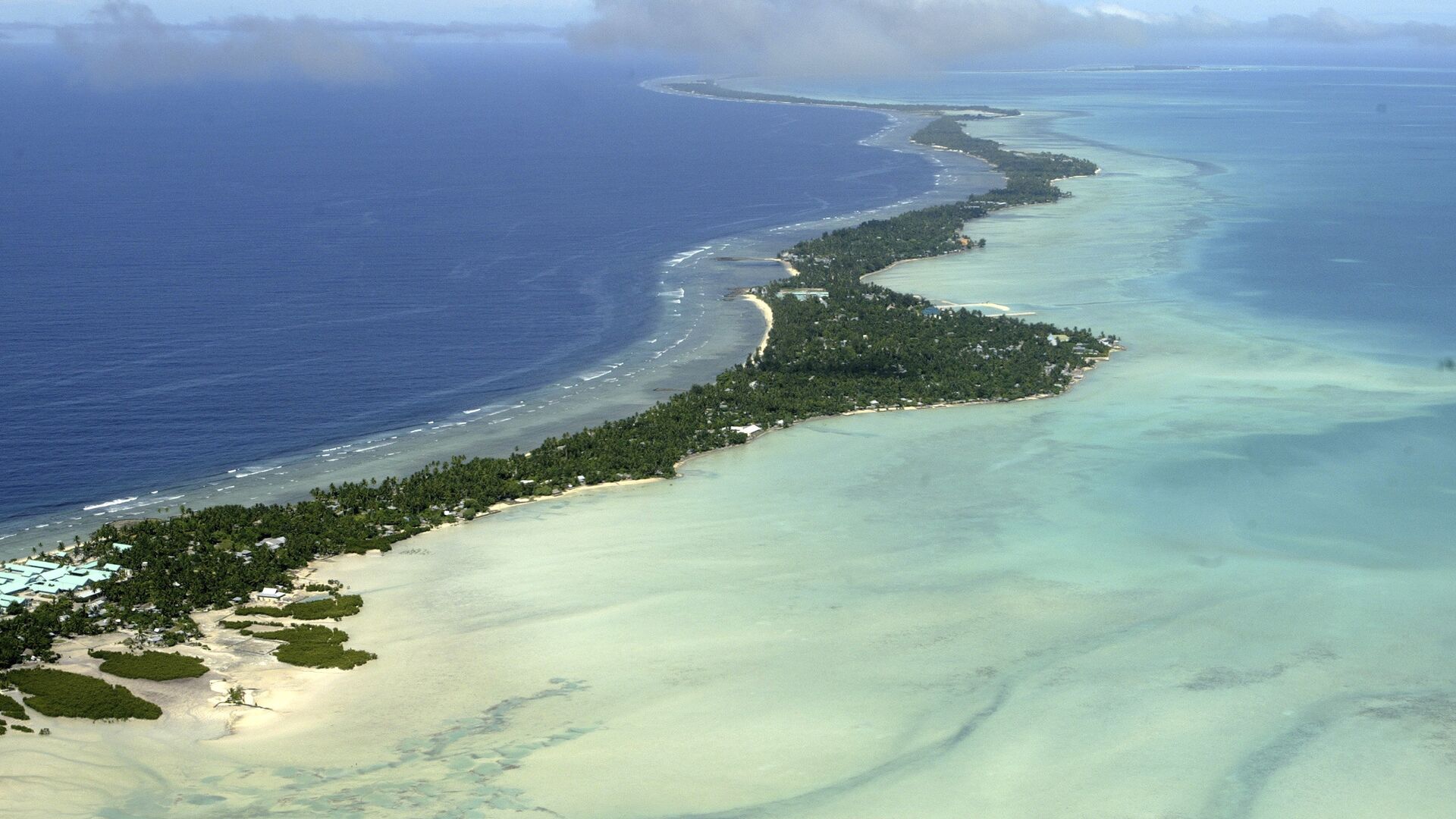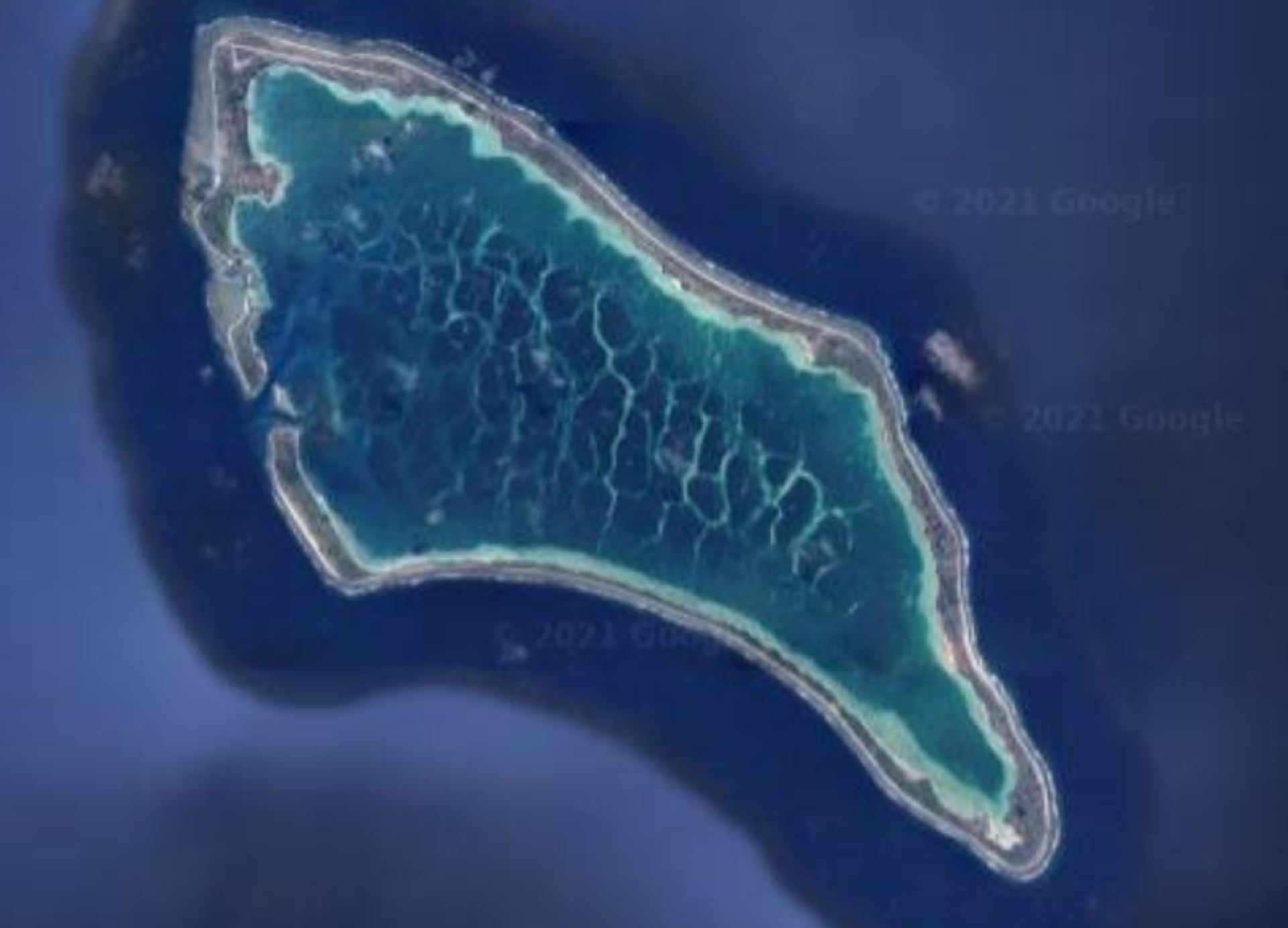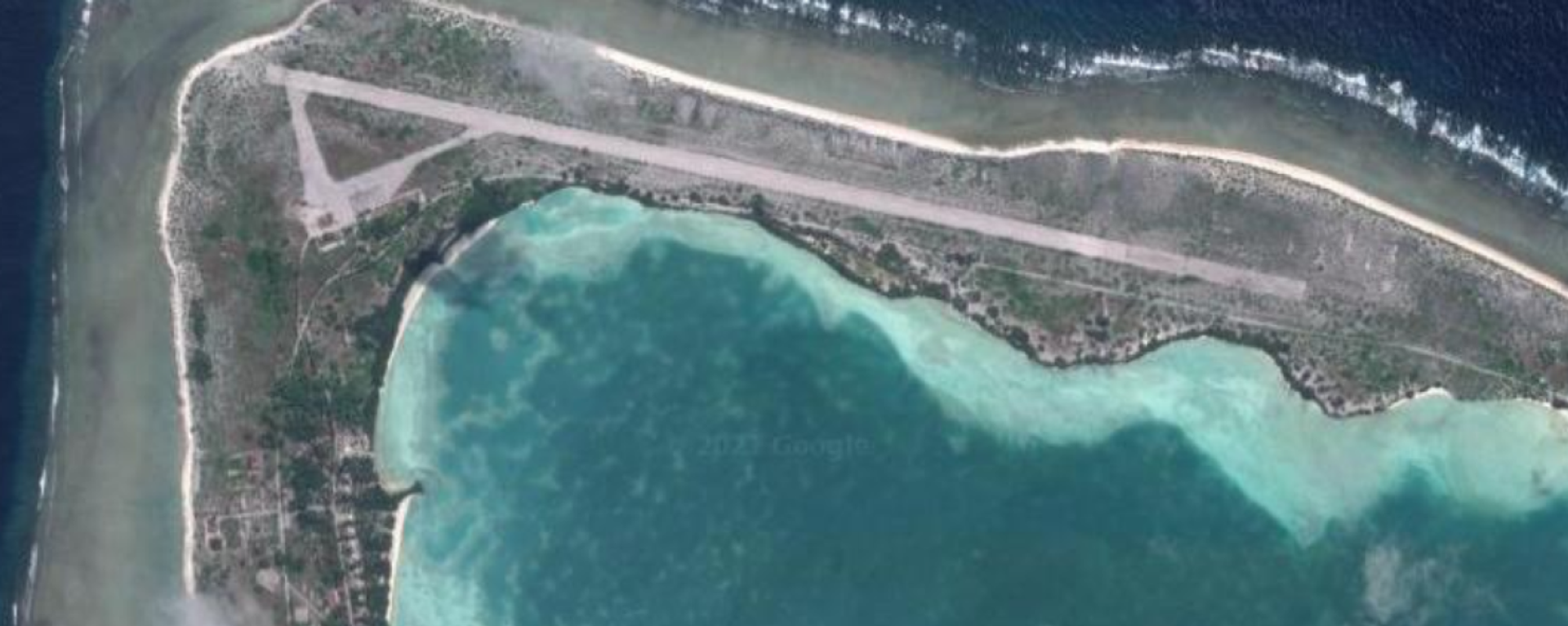https://sputnikglobe.com/20220130/one-of-the-last-safe-havens-on-earth-loses-its-covid-free-status-1092621445.html
One of the Last Safe Havens on Earth Loses Its COVID-Free Status
One of the Last Safe Havens on Earth Loses Its COVID-Free Status
Sputnik International
Kiribati President Taneti Maamau has stated that the government is trying its best to rectify the situation, urging residents to strictly follow COVID-19... 30.01.2022, Sputnik International
2022-01-30T14:12+0000
2022-01-30T14:12+0000
2022-01-30T14:12+0000
disaster
vaccination
lockdown
authorities
kiribati
covid-19
https://cdn1.img.sputnikglobe.com/img/105047/04/1050470435_0:102:2465:1488_1920x0_80_0_0_5e9ac6539f5bde74ab432eb5cda9e23f.jpg
The number of confirmed cases of COVID-19 in the Pacific island nation of Kiribati has jumped to 181, in a sea change from the 36 infections registered earlier this month.For two years, the archipelago remained one of the last places on our planet to avoid any COVID outbreaks due to the nation's remote location and strict border controls.In March 2020, the nation of approximately 140,000 people closed its international border, but earlier in January, Kiribati started reopening as the authorities allowed the Mormon Church of Jesus Christ of Latter-day Saints to charter a plane to bring 54 of the island nation's citizens back home.They included lots of missionaries who left Kiribati before the border closure to spread the faith. More than half of them were COVID-positive despite previously being tested three times in nearby Fiji, and put in quarantine with additional testing when they arrived home.Kiribati President Taneti Maamau has, meanwhile, pledged that the government is using all its resources to improve the situation, and urged people to get vaccinated. Only 33% of the nation's inhabitants are fully inoculated, while 59% have had at least one dose of a vaccine, according to the online scientific publication Our World in Data.The rise in COVID cases previously prompted the government to declared a state of disaster, with lockdowns extended on a number of Kiribati's islands, including South Tarawa, Betio, and Buota.Commenting on the matter, Helen Petousis-Harris, a vaccine expert at the University of Auckland in New Zealand, for her part, asserted that "generally speaking, it's inevitable" and that COVID-19 "will get to every corner of the world".
https://sputnikglobe.com/20210506/kiribati-clamor-western-experts-fear-chinese-runway-repair-actually-aims-at-new-air-base-1082820939.html
kiribati
Sputnik International
feedback@sputniknews.com
+74956456601
MIA „Rossiya Segodnya“
2022
Oleg Burunov
https://cdn1.img.sputnikglobe.com/img/07e4/09/0b/1080424846_0:0:2048:2048_100x100_80_0_0_3d7b461f8a98586fa3fe739930816aea.jpg
Oleg Burunov
https://cdn1.img.sputnikglobe.com/img/07e4/09/0b/1080424846_0:0:2048:2048_100x100_80_0_0_3d7b461f8a98586fa3fe739930816aea.jpg
News
en_EN
Sputnik International
feedback@sputniknews.com
+74956456601
MIA „Rossiya Segodnya“
Sputnik International
feedback@sputniknews.com
+74956456601
MIA „Rossiya Segodnya“
Oleg Burunov
https://cdn1.img.sputnikglobe.com/img/07e4/09/0b/1080424846_0:0:2048:2048_100x100_80_0_0_3d7b461f8a98586fa3fe739930816aea.jpg
disaster, vaccination, lockdown, authorities, kiribati, covid-19
disaster, vaccination, lockdown, authorities, kiribati, covid-19
One of the Last Safe Havens on Earth Loses Its COVID-Free Status
Kiribati President Taneti Maamau has stated that the government is trying its best to rectify the situation, urging residents to strictly follow COVID-19 protocols to minimise virus-related risks.
The number of confirmed cases of
COVID-19 in the Pacific island nation of Kiribati has jumped to 181, in a sea change from the 36 infections registered earlier this month.
For two years, the archipelago remained one of the last places on our planet to avoid any COVID outbreaks due to the nation's remote location and strict border controls.
In March 2020, the nation of approximately 140,000 people closed its international border, but earlier in January, Kiribati started reopening as the authorities allowed the Mormon Church of Jesus Christ of Latter-day Saints to charter a plane to bring 54 of the island nation's citizens back home.
They included lots of missionaries who left Kiribati before the border closure to spread the faith. More than half of them were COVID-positive despite previously being tested three times in nearby Fiji, and put in quarantine with additional testing when they arrived home.
Kiribati President Taneti Maamau has, meanwhile, pledged that the government is using all its resources to improve the situation, and urged people to get vaccinated. Only 33% of the nation's inhabitants are fully inoculated, while 59% have had at least one dose of a vaccine, according to the online scientific publication Our World in Data.
The rise in COVID cases previously prompted the government to declared a state of disaster, with lockdowns extended on a number of Kiribati's islands, including South Tarawa, Betio, and Buota.
Dr Api Talemaitoga, chair of a network of Indigenous Pacific Island doctors in New Zealand, was cited by ABC News as saying that Kiribati had only several intensive care beds in the entire nation, and that it earlier relied on sending its sickest patients to Fiji or New Zealand for treatment. Talemaitoga added that he said: "Oh, my lord" after hearing the news about a COVID outbreak in Kiribati.
Commenting on the matter, Helen Petousis-Harris, a vaccine expert at the University of Auckland in New Zealand, for her part, asserted that "generally speaking, it's inevitable" and that COVID-19 "will get to every corner of the world".
"It's a matter of buying enough time to prepare and getting as many people vaccinated as possible", she added.




